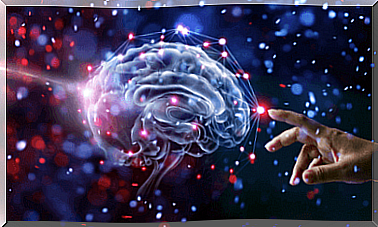What Is The Relationship Between Psychological Inflexibility And Depression?

Psychological inflexibility refers to the inability to change your mind, even when everything proves otherwise, and to look at a situation from different points of view. Psychological inflexibility makes our lives difficult and is one of the precipitating or intensifying factors of suffering. It is defined by six processes that form the opposite side of the processes seen in psychological flexibility: uncompromising attention, breaking one’s values, inactivity or impulsiveness, identification with a conceptual self, cognitive fusion, and experiential avoidance.
Albert Ellis’s rational emotive behavioral therapy says that people get depressed because of their irrational interpretations of events that affect them. People’s belief systems are a very important factor in explaining emotional disturbances and, therefore, it is one of the main points worked on in therapy.
Irrational interpretations, along with the inflexibility to change this belief system, keep depression going. Aaron Beck’s cognitive model of depression proposes that depressive patterns give rise to depressive symptoms when the frequency of automatic negative thoughts increases in response to life events. Both psychological inflexibility and automatic negative thoughts act as significant intermediaries in the relationship between depressive patterns and depressive symptoms.
Therefore, imperative, inflexible, overwhelming, and self-destructive beliefs are linked to exaggerated and dogmatic patterns of behavior, emotion, and interpretation that function as generators of emotional disturbances. These emotional disturbances can lead to mood disorders.

Psychological inflexibility is a feature that deserves attention in the treatment of depression.
Psychological flexibility has been linked to several positive indicators in individuals with mental health problems and chronic illnesses, and has been identified as an important mechanism of psychotherapeutic change. However, during therapy, practitioners pay little attention to psychological flexibility.
Initially, inflexible people may project a sense of security, but in reality, if you look at their refusal to see things from another perspective, you’ll notice something they try to hide: their own insecurity. They feel comfortable doing, thinking and defending the same thing over and over again and in different situations. It’s your comfort zone. Getting them out of there makes them feel helpless and it makes them afraid.
To try to change this, one must be aware of the advantages of mental flexibility and the disadvantages of inflexibility in psychological disorders. Sometimes it will be necessary to be inflexible in certain situations, but in most cases, flexibility will give us a better answer.
The most disabling feature of psychological inflexibility is people’s inability to change mental routines and habits, which in many cases leads to depression. Mental mechanisms are highly harmful in depression, making it worse and preventing the person from overcoming it. The depressed person’s way of thinking is full of negative ideas that repeat themselves, creating greater doses of discomfort.

Psychological flexibility: a tool for a full life
The vision we have of the world and our environment conditions our well-being and, with it, the involvement, commitment and attitude we have with ourselves and with others. Therefore, being a person with a flexible mind has many advantages. Flexible people never stop learning, growing and relating. In addition, they also tolerate frustration better, are not afraid of change, learn from adversity and have lower levels of stress.
Psychological flexibility is a set of general ideas about life that shape one’s behavior, thoughts and emotions and that do not allow the use of rigid rules, about others and about ourselves. Adapting to different situations and acting with values in an effective way is to be like water, which surpasses everything because it adapts to any environment.








